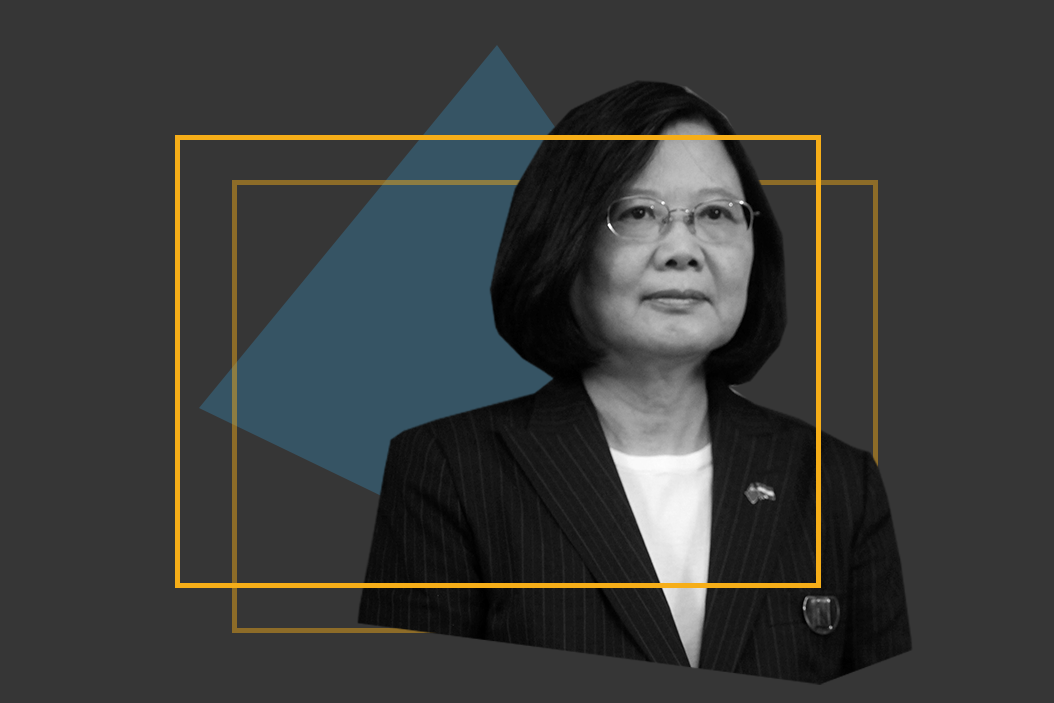There is perhaps no woman in the world whom China fears more than Tsai Ing-en, president of Taiwan. When Tsai, an outspoken advocate of Taiwanese independence, campaigned for the presidency in 2016, Chinese state media questioned whether a woman could lead the self-governing island. She won, becoming Taiwan's first female leader.
Four years later, Beijing raised doubts about her not only because she is a woman, but because she is unmarried and has no children. She won again, this time in a landslide widely seen as a major blow to Beijing.
Today she is one of the region's most transformational leaders — pushing Taiwan to punch above its weight in global affairs, turning it into a beacon for gender equality in Asia, and overseeing one of the most effective responses to the pandemic. All of this, of course, while dealing with the growing threat that China, under Xi Jinping, will make good on its long-standing pledge to reunify Taiwan with the mainland — by force if necessary.
Here are a few aspects of Tsai's policies and approach that you should know.
Cat vs wolf. Beijing's increasingly assertive foreign policy — including on reunification — has been dubbed "wolf warrior" diplomacy after a recent blockbuster Chinese film of the same title. But faced with the wolf, Tsai instructed her top diplomats to view their much smaller country's strategy as that of a cat, nimbly using soft power to promote Taiwan as peace-loving and compassionate — the antithesis to China's belligerence and bullying.
When China moved to end democracy in Hong Kong, for example, Tsai offered political asylum to Hong Kong citizens fleeing oppression. In the early stages of the pandemic, while Chinese suppliers were squeezing countries desperate for PPE, Tsai donated 50 million Taiwan-made face masks to nations in need.
Tsai is fully aware that she has no choice but to be creative in foreign policy under China's immense global pressure. After all, only 15 countries currently recognize Taiwan. And while the US has shored up its support for Taipei in recent years, even Washington is wary of provoking China too much (for now) on such an existential issue for Beijing.
COVID crusher. Tsai was sworn in for her second term last May, when Taiwan had already emerged as an early success story in the global fight against the coronavirus. To date, the island of 23 million people has registered only 10 deaths and less than a thousand cases, while returnees are fueling an economic boom.
Like her Kiwi colleague Jacinda Ardern, Tsai succeeded by trusting science, allowing public health experts to guide the severity of the response, and by giving clear and consistent guidance to her people. She also made Taiwan a symbol of global cooperation by working with the World Health Organization despite not being a member (China has blocked Taiwan's unofficial observer status since 2017).
Tsai's pandemic management initially sent her domestic approval ratings through the roof. They have declined somewhat since, but Taiwan's president is still considered one of the very few world leaders who has beaten the pandemic.
A champion for generational change. Beyond staring down both China and COVID, Tsai has also made a significant contribution to the modernization of Taiwan's society. That has a lot to do with her widespread support among a new generation of Taiwanese.
Tsai's base is overwhelmingly young and urban. Most of her voters have only faint memories of authoritarian rule until the early 2000s. They identify more as Taiwanese than both Taiwanese and Chinese, don't want to become part of mainland China, and favor progressive policies like same-sex marriage (which Taiwan legalized in 2019, a first for Asia).
Taiwan's president, 64, is not from this younger generation. But she has embraced change, for instance by leading the charge to boost female representation in parliament (now at 42 percent, the highest in the region). Tsai has also taken bold steps to promote gender equality in politics and business, as well as by taking on the cultural relics of sexism in Taiwanese society: last October she got on social media to urge men to stop gifting young girls with golden hairpins, which symbolize traditional feminine subservience in Taiwan.
What's next for a lame duck? Tsai has almost three years left as president, and term limits mean her time is up after that. But these three years mark a critical period in which Tsai will guide Taiwan out of the pandemic, while also navigating through an increasingly fraught US-China relationship.
She has been defying traditional stereotypes and Chinese pressure for years now, but her biggest tests may be yet to come.
This article is part of GZERO Media's Women in Power Series, profiling female leaders around the world who hold positions of decisive power and influence in global politics.
- Women in power: Chile’s Michelle Bachelet - GZERO Media ›
- Women in power: Chile’s Michelle Bachelet - GZERO Media ›
- J&J vaccine review will cause hesitancy; Blinken warns China on Taiwan - GZERO Media ›
- Would China really invade Taiwan? - GZERO Media ›
- We are heading to a Taiwan crisis - GZERO Media ›
- China escalates on Taiwan; US-China relations get worse - GZERO Media ›
- Finland joins NATO in face off against Russia - GZERO Media ›
